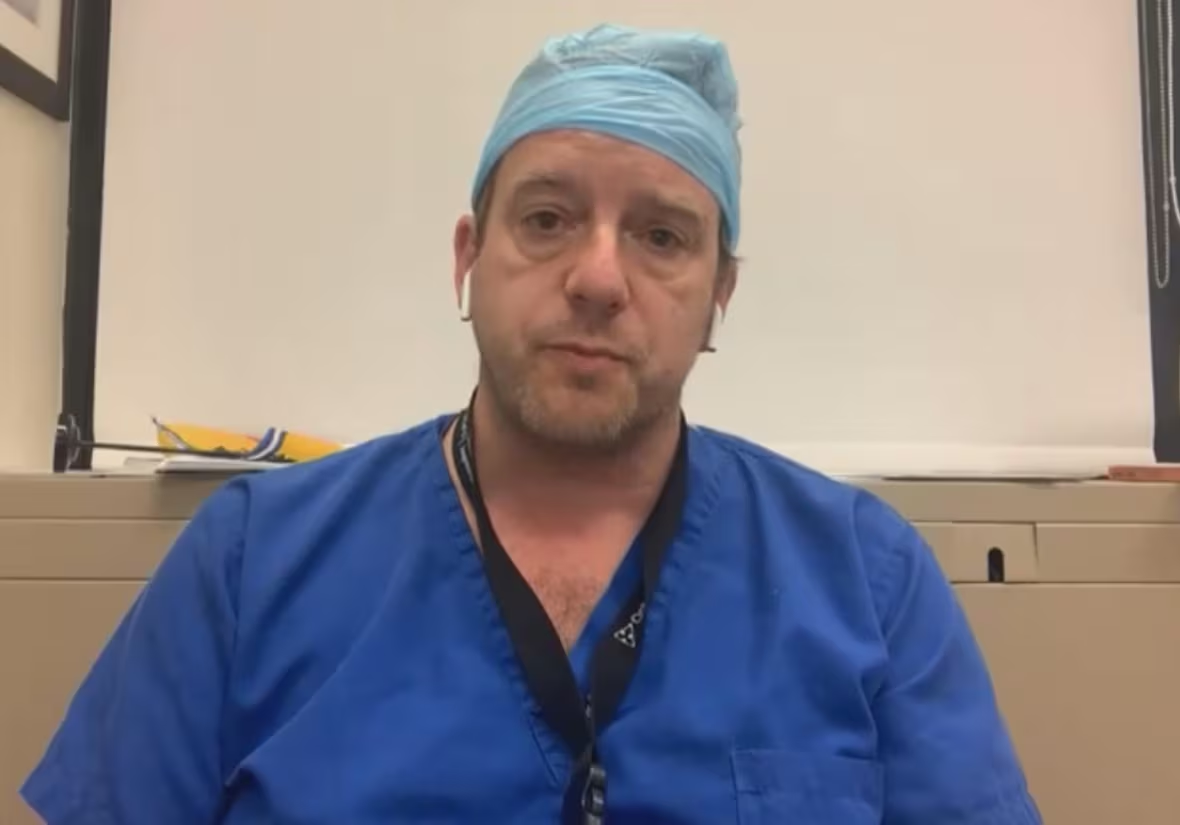Ontario orders hospitals to halt non-emergency surgeries as COVID-19 patients fill ICUs
'Extreme pressure' on critical care means elective procedures postponed as of Monday across most of province
The Ontario government's health agency is telling hospitals across most of the province to stop performing all but emergency and life-saving surgeries because of the growing caseload of COVID-19 patients, CBC News has learned.
A memo was sent to hospitals Thursday night telling them to postpone their non-emergency surgeries, effective Monday, everywhere but in northern Ontario. Pediatric specialty hospitals are excluded from the order.
Ontario has not ordered such an across-the-board postponement of non-emergency surgeries since the first wave of the pandemic hit the province in March 2020.
"Given increasing case counts and widespread community transmission across many parts of the province, we are facing mounting and extreme pressure on our critical care capacity," says Ontario Health CEO Matthew Anderson in the memo, obtained by CBC News.
"We are instructing hospitals to ramp down all elective surgeries and non-emergent/urgent activities in order to preserve critical care and human resource capacity," says Anderson.

The provincial health agency is also warning hospitals that they may be asked to send staff to harder-hit areas.
"We may request available health-care workers/teams to support care in other parts of the system," says Anderson. "We may be asking you to identify available staff who might be redeployed to sites requiring support."
The order comes with Ontario hospitals reporting a record number of patients critically ill with COVID-19 in the intensive care units. Premier Doug Ford cited the pressure on ICUs in his decision Wednesday to declare a third state of emergency and put the province under a stay-at-home order.
There were 541 patients with COVID-19 in the province's ICUs on Thursday night, according to a daily report from Critical Care Services Ontario.
Ford said Thursday that the province is now in a similar situation in hospitals as it was at the start of the pandemic.
"The quicker that we get these vaccines into people's arms, we'll be able to lighten the load on ICUs," he said.
Ontario has roughly 2,000 ICU beds. Emergency patients who don't have COVID-19 typically fill 1,200 to 1,400 of those beds.
Modelling from Ontario's COVID-19 Science Advisory Table projects 600 COVID-19 patients in ICUs by the middle of April, and 800 by the end of the month, should current case trends continue.
"To look after the kinds of patients that we know are going to be coming over the next couple of weeks, we need to generate more capacity," said Dr. Chris Simpson, Ontario Health's executive vice-president of medical, in an interview Thursday night.
"To do that, we need to ramp down some of the surgeries and procedures and other care that can be deferred," said Simpson, who works as a cardiologist at Kingston Health Sciences Centre. That hospital has already been the destination for numerous transfers of patients from the Greater Toronto Area in an effort to relieve the pressure on the busiest hospitals.
Emergency surgeries for such things as strokes, heart attacks and trauma would not be postponed, nor would urgent cancer surgeries, said Simpson. However, operations such as hip and knee replacements would be deferred.
Postponing elective surgeries frees capacity in ICUs because some patients need critical care after their operations, sometimes because of the intensity of the surgery or because of complications, said Simpson.
"We need to ensure that every ounce of capacity that we have is used as best as we possibly can," he said.
The province's suggestion that staff could be asked to redeploy between hospitals is "sobering and unprecedented," said Dr. Kevin Smith, CEO of Toronto's University Health Network (UHN) in an email sent Friday to staff.
"This is going to be the most extraordinary and demanding time most of us have had in our working lives. It comes to us after a very long year which has left us feeling battered and drained," said Smith.
UHN is the biggest hospital system in Ontario with more than 1,100 staff physicians and 4,300 nurses.
Ontario already has a backlog of more than 245,000 medical procedures deferred from earlier in the pandemic, according to the most recent provincial data.
The Ford government allocated an extra $1.8 billion in last month's provincial budget to help hospitals care for COVID-19 patients and clear the backlog.

